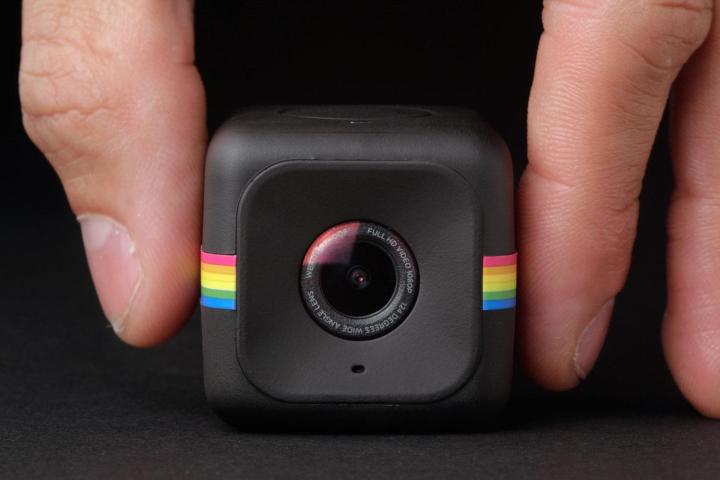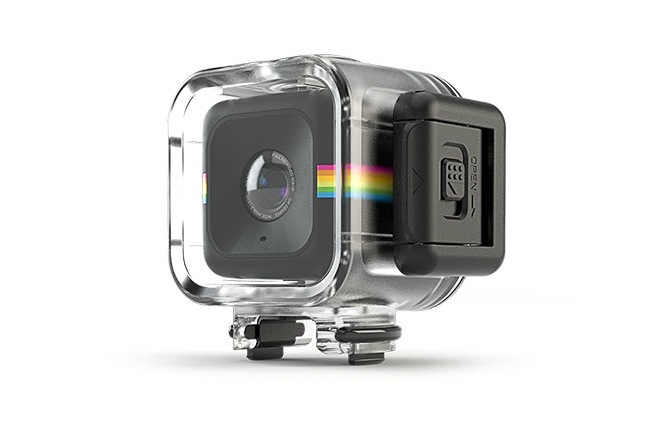
The first infringement claim relates to the software that allows the GoPro app to preview video footage remotely. According to the complaint, the Cube+ uses a similar software that converts footage to low-resolution in order for the footage to be viewed and edited remotely without slowing down the smartphone or eating up data. In the words of the complaint, “the invention reduces the computation and bandwidth demands of trying to preview the high-res image and can be used in viewing captured images through a [smartphone] app.”
GoPro says that the design of the Polaroid Cube also infringes on its own case designs. While the Cube emerged over a year before GoPro released the square Hero4 Session, GoPro filed a patent for a waterproof case for a square-shaped camera back in 2014.
The early case patent was one of GoPro’s arguments when they were on the receiving end of a lawsuit from C&A. In November of last year, the Polaroid licensee sued GoPro for copying the Cube with the Session. The original Cube was released early in 2014, with the Cube+ (which has Wi-Fi) introduced last year. The GoPro Session was released in 2015, a year after the original Cube. But at the time of the initial lawsuit, GoPro said that it had patented the Session in the European Union and Asia, with a patent pending in the U.S. The case patent from 2014 shows that GoPro was working on a cube-shaped camera before the Cube was available, the company claims.

Last year’s lawsuit was a hit to GoPro, who had already been suffering from lower sales and a falling stock price. And the Session, at first launch, had very disappointing sales — likely due to the fact that the firm priced the lower-quality camera at the same point as the full-fledged GoPros. GoPro has since cut the price in half, selling the Session for $199. The Polaroid Cube, in turn, sells for around half of that.



